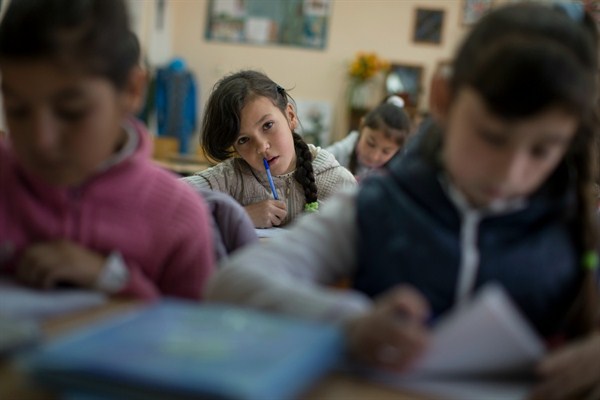Editor’s Note: This article is part of an ongoing series about education policy in various countries around the world.
For many years, the issue of language has been a persistent point of social tension inside Ukraine, as the country contends with the nature of its relationship to Russia. After long downplaying the matter, Ukraine’s parliament brought it front and center last week with a new law that restricts the teaching of Russian and other minority languages in schools—eliciting outcries in capitals from Moscow to Budapest. In an email interview, Nicolai Petro, the Silvia-Chandley Chair in Peace and Nonviolence at the University of Rhode Island, explains the nature of minority language rights inside Ukraine, the impact of the new law, and what can be expected in Ukraine’s relations with its neighbors going forward.
WPR: How has Ukraine, a fairly multi-ethnic state, traditionally handled minority rights, and in particular minority language rights?

